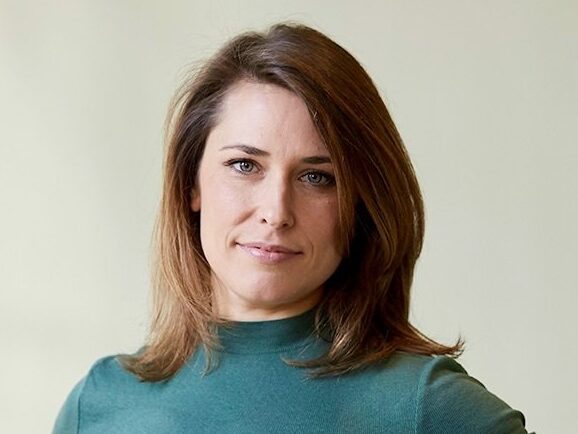ORIGINALLY TRAINED AND WORKING AS AN OPERA SINGER, FAMILY CIRCUMSTANCES PROMPTED A CHANGE OF CAREER FOR SARAH POLAN.
Technology had long been an interest and, recognising that music is a type of code in itself, at the age of 31 she took the decision to attend code school.
Six years later, Sarah is now field CTO at HashiCorp, provider of multi-cloud infrastructure automation software.
HOW DID YOU LAND YOUR CURRENT ROLE? WAS IT PLANNED?
One of the major reasons I decided to go into tech is because I wanted to be able to positively impact the industry. When I started, it was about getting my hands on any and all knowledge and being able to understand and execute. As my career has progressed, I’ve found subjects which are interesting to me personally and took those opportunities to learn more and build confidence. When I arrived at a point in my career when I had the opportunity to start speaking at conferences, I really had to lean into that discomfort and remind myself that I had an opportunity to put that cog in motion and represent women in tech.
As fate would have it, my first conference happened to be run by the same organizer as HashiConf, the HashiCorp conference, which led to working more closely with the HashiCorp team, first at HashiConf, then other events.
I loved the integrity and kindness of the people and how the products took a pragmatic approach of solving a very complex problem and placed HashiCorp in my “Dream Company” category.
When the EMEA Field CTO role opened up, I was approached by a couple different members from the HashiCorp Team as a result of working with them and regularly writing technical articles about Secrets Management. This role, especially with HashiCorp, was something that, in my mind, was maybe attainable 5 years down the road. When they asked me if I would potentially be interested, I think my very eloquent response was “Um, yes. But are you serious?”. It was definitely a personal lesson about how I perceive myself and my skills.
WHAT ARE THE KEY ROLES IN YOUR FIELD OF WORK, AND WHY DID YOU CHOOSE YOUR CURRENT EXPERTISE?
Honestly, my current expertise chose me. When I moved into Secrets Management, I remember wondering why anyone would need to specialize in something that was simply putting strings of information into a vaulting solution. The more I learned, though, the more I appreciated the complexity, and how many interdisciplinary skills were involved. It is the junction of containerisation, cloud, identity, security, and innovation which allowed me to go as deep or as wide as I wanted. Looking back, life would have been very different had I decided not to rise to the challenge.
WHAT ARE YOU MOST PROUD OF IN YOUR CAREER, SO FAR?
I’m really proud of being considered a leader in the industry. Given where I started, when I started, and how I started, people told me to manage my expectations. Some even told me that it was impossible. From retraining, starting over in my 30’s as a single mother to completing my master’s, literally in the middle of the night, as a working parent, it’s taken a lot of energy, tenacity, and resilience.
WHAT DOES AN AVERAGE WORK DAY LOOK LIKE FOR YOU?
One of the things I love about my job is that I don’t have a typical work day. Generally, I spend a significant amount of time with customers helping them identify bottlenecks within their development lifecycle and strategic themes throughout their IT organization. The subjects vary from programmatic discussions around Cloud and platform teams to deeper dives into best practices around topics like Zero Trust Security and Infrastructure as Code and what a successful implementation looks like.
In order to create some structure and balance at home, I do my best to alternate travel weeks and non-travel weeks. On the weeks that I am home I do my best to keep up with the market and technology trends. I do a lot of reading, tech and economic articles mostly, watching talks from tech events, and trying out new technologies. My favorite thing to do, though, on any given week is technical writing. Writing allows me to synthesize all of the information that I have received and break it down into something that I think is pertinent and easily consumable to other executives; it’s a way of testing my knowledge and ensuring that my knowledge is relevant.
ARE THERE ANY SPECIFIC SKILLS OR TRAITS THAT YOU NOTICE COMPANIES LOOK FOR WHEN YOU’RE SEARCHING FOR ROLES IN YOUR FIELD?
Companies are always looking for people with cloud skills or container skills or security skills. All of those topics are incredibly broad, though and the ability to simply execute any one of those technologies is not necessarily representative of a person’s potential and aptitude.
IT has been keen to emphasize role definition, which can be detrimental as it lends itself to misperception of risk and potential technical debt due to homogeneous thinking. I believe that roles within platform teams haven’t been fully or accurately defined and will continue to evolve, which provides a unique opportunity to restructure how we address teams and even infrastructure.
Generally, I see that roles and team structures that suited more static IT structures no longer fit the dynamism we are required to manage as a result of the Cloud and the subsequent Systems of Engagement. As a result, more companies are recognising that adaptability, inclination for learning, and communication skills are perhaps more indicative of success than a specific propensity to tooling.
HAS ANYONE EVER TRIED TO STOP YOU FROM LEARNING AND DEVELOPING IN YOUR PROFESSIONAL LIFE, OR HAVE YOU FOUND THE TECH SECTOR SUPPORTIVE?
I made a very conscious decision when I began in the tech sector that I would only stay in a role as long as I was learning and evolving professionally, which I have always been very open about with employers, even during the recruitment process. With very few exceptions, that has been widely accepted and fostered from peers to leaders to mentors. I consider growth non-negotiable, and I have chosen not to give my time or energy to those who don’t recognize that value.
HAVE YOU EVER FACED INSECURITIES AND ANXIETIES DURING YOUR CAREER, AND HOW DID YOU OVERCOME THEM?
Every day of my career, still. I come from a non-traditional background, have been in the industry a relatively short period of time, and came into my technical career much later in life than most of my peers, just as Public Cloud was beginning to gain traction. I don’t have the experience with Private Data Centers and Mainframes that most of my peers do, nor the years of war stories. When I was handed the reins for my first architect role, I actually made myself ill from the anxiety and insecurity of not feeling sufficiently qualified.
Frequently, I still perceive myself as junior or less knowledgeable around a table of my peers. It wasn’t until a mentor, very recently, pointed out that while I may not possess their knowledge, they don’t possess my knowledge, either, and that time does not equate to capability that I began reframing my beliefs. I can’t say that I have overcome those insecurities or the Imposter Syndrome, but I have learned how to put these ideas into perspective a bit better.
ENTERING THE WORLD OF WORK CAN BE DAUNTING. DO YOU HAVE ANY WORDS OF ADVICE FOR ANYONE FEELING OVERWHELMED?
Take it one step at a time and break it down into smaller parts; probably smaller than you think is necessary. Having a longer term goal is critical, but know that goal may evolve with the market. It’s impossible to predict what the sector will look like in 10 years, but no knowledge is lost or wasted. Never stop learning and learn what interests you. And the great thing about code, everything can be undone.
WHAT ADVICE WOULD YOU GIVE OTHER WOMEN WANTING TO REACH THEIR CAREER GOALS IN TECHNOLOGY?
Get comfortable with being uncomfortable. Accept challenges that push your skills and make you evaluate the problem from a different angle. Work with the right leader, someone who will foster your growth and push you. Network. Technology is a rewarding sector, both financially and professionally, and it can feel confrontational, but we have a unique opportunity to change that, contribute so the next generation can impact that resistance even more.







